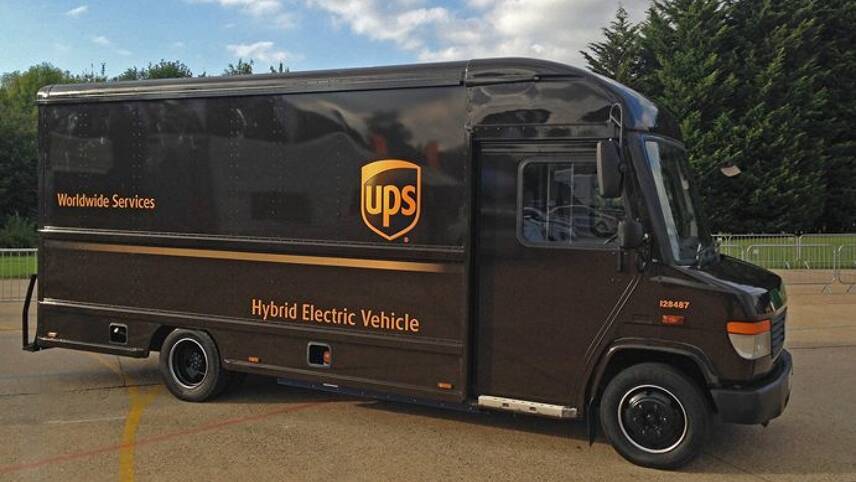Register for free and continue reading
Join our growing army of changemakers and get unlimited access to our premium content

10 REEVs have entered UPS’s delivery fleet in Tamworth and an additional 5 in Southampton. Image: UPS
The move was made to overcome range limitations on pure EVs within logistics, ensuring that vehicles can remain on the road for up to 400km (248 miles) – four times the previous range.
The REEVS use ‘geofencing’ technology to switch into pure EV mode when reaching a specific boundary, such as a clear air zone with cities and towns. The same system allows the vehicle to switch to the on-board range extender that uses a smaller and efficient diesel engine to recharge the battery.
The vehicles were developed in conjunction with electric vehicle specialists TEVVA and part-funded by The Office for Low Emission Vehicles (OLEV) and Innovate UK. They form part of UPS’s “rolling laboratory” strategy to develop a variety of alternative fuel vehicles to ensure the company reduces its carbon footprint.
The new vehicles aim to provide a solution for firms where warehouses and depots are based outside the city centre and designed clean air zones. The current generation of 7.5-tonne electric delivery vehicles has an average range of 100km, which is often not far enough to reach urban drop off points.
With a cubic capacity of 23M³, the REEVs also maintain the operational efficiency of high-volume package delivery vehicles. This avoids the need for a greater number of smaller capacity electric vehicles carrying the same number of packages, in turn reducing congestion on the roads.
Breakthrough in technology
UPS International’s director of automotive engineering and advanced technology Luke Wake, said: “This is a big breakthrough for our continued use of electric vehicles in the UK. We can serve our customers with lower emission, alternatively-fuelled vehicles in places beyond the reach of existing pure electric vehicles at this weight class.”
Commercial director at TEVVA, Richard Lidstone-Scott, said: “Commercial vehicles account for 27% of transport-related CO2 and 5% of total greenhouse gas emissions on Europe’s roads. EU legislation says that this needs to be cut by 15% by 2025 and 30% by 2030, and net-zero in the UK by 2050.”
“What that means is the electrification of the medium-duty truck sector is inevitable, yet many firms and OEMs are still scratching their heads about how and when to make that happen.”
Innovation
UPS has been a leader in EV technology across the logistics industry in recent years, taking forward a variety of programmes and pilot schemes.
In July 2018, UPS sustainable development co-ordinator, Claire Thompson-Sage, revealed to edie that it planned to incorporate batteries from its end-of-life electric vehicles (EVs) into its storage and charging network next year as it strives to create its first fully-electric fleet of delivery vans across London.
Following this, it also trialled power-assisted trailers for last-mile deliveries in central London, and then incorporated e-Bikes into its US-based urban delivery fleet for the first time.
James Evison


Please login or Register to leave a comment.